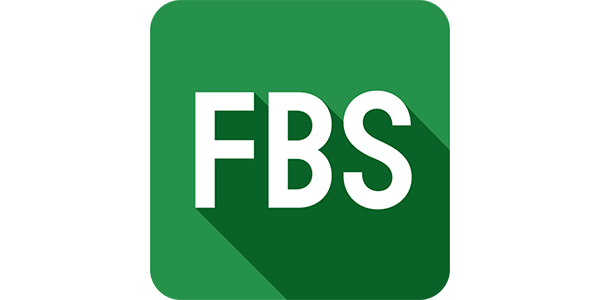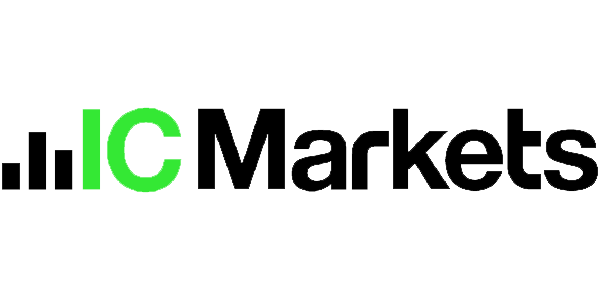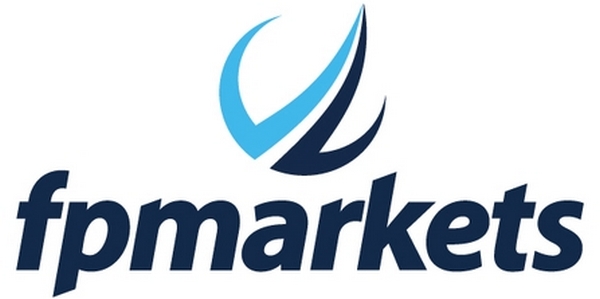List of The Best Platform for Trading
Here’s a quick comparison of the best trading platform based on their compatibility and market access.
| Best For | Commision | Min Dep | Leverage | Platforms | ||
|---|---|---|---|---|---|---|
| Beginners, Professionals, Active Traders | From $6 per lot | $100 | Up to 1:500 | MetaTrader 4 MetaTrader 5 Ctrader | ||
| Beginners, Active Traders | No commission (for Standard accounts) | $5 | Up to 1:1000 | MetaTrader 4 MetaTrader 5 | ||
| Beginners, Professionals, Active Traders | From $5 per lot | $100 | Up to 1:400 | AvaTradeGo MetaTrader 4 MetaTrader 5 | ||
| Beginners, Copy Traders | No commission | $200 | Up to 1:30 (1:5 for crypto) | eToro Platform MT4 MT5 | ||
| Beginners, Active Traders, Scalpers | No commission | $1 | Up to 1:2000 | MT4 MT5 WebTrader Exness Trade App | ||
| Beginners, Professionals, Active Traders | No commission (for Standard accounts) | $1 | Up to 1:3000 | MetaTrader 4 MetaTrader 5 | ||
| Beginners, Active Traders, Scalpers | From $5 per lot | $100 | Up to 1:50 | MetaTrader 4 FOREX.com Web Trader | ||
| Beginners, Active Traders, Scalpers | From $4 per lot | $100 | Up to 1:500 | MetaTrader 4 MetaTrader 5 cTrader FxProEdge | ||
| Beginners, Active Traders, Scalpers | No commission | $200 | Up to 1:1000 | MetaTrader 4 MetaTrader 5 WebTrader | ||
| Beginners, Professionals, Active Traders | From $6 per lot | $5 | Up to 1:1000 | MetaTrader 4 MetaTrader 5 Web Terminal Multi Terminal | ||
| Professionals, Active Traders, Scalpers | From $3 per lot | $200 | Up to 1:500 | MetaTrader 4 MetaTrader 5 cTrader | ||
| Beginners, Active Traders | No commission | $0 | Up to 1:200 | MetaTrader 4 ProRealTime WebTrader | ||
| Beginners, Active Traders, Proffesionals | No commission | $1 | Up to 1:1000 | MetaTrader 4 MetaTrader 5 | ||
| Beginners, Professionals | No commission on standard accounts | $10 | Up to 1:1000 | IQ Option Platform Mobile App | ||
| Active Traders, Beginners | No commission | $1 | Up to 1:50 | MetaTrader 4 OANDA Platform | ||
| Beginners, Active Traders, Scalpers | No commission on standard accounts | $25 | Up to 1:1000 | MetaTrader 4 MetaTrader 5 OctaTrader | ||
| Beginners, Active Traders, Scalpers | No commission | $200 | Up to 1:500 | MetaTrader 4 MetaTrader 5 cTrader | ||
| Active Traders, Scalpers | No commission | $10 | Up to 1:2000 | MT4 MT5 R StocksTrader | ||
| Inexperienced and Active Traders, Scalpers | From $2 per lot | $100 | Up to 1:500 | MetaTrader 4 MetaTrader 5 | ||
| Beginners, Proffesionals | No commission | $5 | Up to 1:1000 | MetaTrader 4 MetaTrader 5 |
Thailand Market & Regulatory Context
Securities & Forex Regulation in Thailand
- The main regulatory body for securities and derivatives in Thailand is the Securities and Exchange Commission (SEC) of Thailand. Forex and derivatives brokers may need to register or comply with Thai SEC rules when serving local clients.
- The Bank of Thailand (BOT) also plays a role in currency stability, anti-money laundering (AML) oversight, and capital flow regulation.
- Some global brokers accept Thai clients via offshore entities. These brokers may not be regulated locally, so Thai users must check which regulatory entity is serving them.
Market Structure & Thai Exchanges
- The Stock Exchange of Thailand (SET) is the primary stock market in Thailand. As of 2025, it lists over 850 companies.
- There is also mai (Market for Alternative Investment), which is a parallel market for small and medium enterprises (SMEs) under SET’s auspices.
- Many Thai retail traders use local brokers for equities and ETFs. But to gain exposure to global forex, commodities, indices, and high-leverage instruments, they often resort to international platforms.
Challenges & Opportunities
- Currency risk & baht behavior: The Thai baht (THB) is generally stable, but fluctuations can affect conversions and cross-instrument pricing.
- Local regulatory barriers: Some brokers are restricted from advertising in Thailand or accepting new Thai clients under certain local compliance rules.
- Payment & banking integration: Thai users may prefer platforms that allow deposits/withdrawals in THB or via local banks/payment channels.
- Competition & liquidity: Global brokers offering deep liquidity in major forex markets tend to serve Thai clients as well, providing access to tighter spreads and better execution.
Key Criteria for Thai Trading Platforms
When assessing a trading platform for use in Thailand, consider this checklist. These criteria help you evaluate whether a platform meets both global standards and local constraints:
- Regulation & Legal Compliance
- Ideally regulated by recognized authorities (e.g. FCA, ASIC, CySEC), and/or permitted under Thai SEC oversight.
- Disclosure of which legal entity your Thai account will fall under.
- AML/KYC compliance and investor protection (segregated accounts, negative balance protection).
- Thai Client Acceptance & Onboarding
- The platform should explicitly accept Thai residents (not block them).
- Local documentation requirements (ID, proof of address) should be manageable.
- Onboarding speed and KYC burden matter for user experience.
- THB or Local Banking Support
- Ideally, deposit/withdrawal in THB, or local Thai bank transfer support.
- If only foreign currencies are supported, check conversion rates, fees, and latency.
- Trading Costs & Transparency
- Clear spreads, commissions, swap/overnight charges.
- No hidden markups or surprise fees during withdrawal.
- Compare costs for your preferred instrument set (major forex, commodities, indices).
- Platform Architecture & Tools
- Support for MetaTrader 4 / MetaTrader 5 / cTrader / proprietary platforms.
- Availability on desktop, web, mobile (iOS, Android).
- Advanced features: charting, indicators, backtesting, automated strategies, API access, copy trading.
- Execution & Slippage
- Check order execution speed, slippage frequency, reliability under volatile markets.
- Prefer low latency infrastructure, good server routing, and strong liquidity providers.
- Instrument Range & Diversification
- Does the platform offer forex, metals, commodities, global indices, stocks/ETFs, crypto (if allowed)?
- More variety gives flexibility in strategy and risk management.
- Customer Support & Thai Localization
- Support during Thai business hours, ideally in Thai language or bilingual Thai / English.
- Responsiveness in chat, email or phone, especially when dealing with deposits/withdrawals.
- Withdrawal Reliability & Business Behavior
- Test withdrawals with small amounts early.
- Ensure the platform honors withdrawal requests without unnecessary delays or rejections.
- Reputation & User Feedback
- Track record in Thai market, user reviews, complaints, regulatory claims.
- Platforms that have operated for years with stable service are more trustworthy.
Popular Trading Instruments in Thailand
Thai traders often access both local and global markets through brokers (local or international). Below are some of the most commonly traded instrument types among Thai investors, and what makes them attractive in the Thai context.
| Instrument Type | Why It’s Popular in Thailand | Usage Notes / Constraints |
|---|---|---|
| Forex / Currency Pairs | High liquidity, speculative / hedging opportunities | Baht pairs may be regulated or restricted |
| Gold & Metals | Cultural value, safe haven | Widely traded; often in USD pricing |
| Thai Equities / Global Stocks | Local market participation & global exposure | Must consider local broker access or international brokers |
| Indices & Index CFDs | Exposure to market trends without stock picks | Use Thai indices (SET, SET50) or global indices |
| Futures & Options | Leverage and derivative strategies | Use through TFEX or via international brokers |
| Crypto / Digital Assets | High volatility, speculative returns | Regulation matters; choose licensed platforms |
| Agricultural / Soft Commodities | Leverage Thailand’s economic base | Less common but meaningful in specialist brokers |
Forex / Currency Pairs
- Majors & cross-pairs (e.g. EUR/USD, GBP/USD, USD/JPY) are very popular due to high liquidity and low spreads.
- THB-related pairs (e.g. USD/THB) are also among instruments of interest, though many brokers restrict speculative trading directly on the baht due to regulatory oversight.
- Thai traders often use these global forex pairs for speculation, carry trades, hedging, or arbitrage across regional markets.
Commodities & Precious Metals
- Gold is particularly popular in Thailand; many Thai households view gold as a “safe asset” and store of value.
- Silver and other metals are also common.
- Energy commodities (like oil) and broader commodity CFDs may be available through international brokers, helping Thai traders gain exposure to global supply/demand dynamics.
Stock / Equity Instruments
- Thai equities listed on the Stock Exchange of Thailand (SET) and mai (Market for Alternative Investment) are core instruments for local traders.
- Global stocks / share CFDs: Many brokers offer access to US, European, and Asian stocks (as CFDs or fractional shares) which Thai traders often use to diversify beyond local markets.
Indices & Index CFDs
- Thai indices like the SET Index, SET50, SET100 are widely watched and traded.
- Global indices like the S&P 500, NASDAQ, FTSE, DAX etc. are offered by brokers, allowing Thai traders to capture global market sentiment.
- Index CFDs let traders speculate on movements of entire markets without owning individual stocks.
Futures, Options & Derivatives
- Through exchanges like TFEX (Thailand Futures Exchange), Thai traders can get exposure to derivatives, futures, and options on equity indices, commodities, and other benchmarks.
- International brokers also provide CFDs or derivative versions of futures & options in global markets.
Cryptocurrencies & Digital Assets
- Many Thai traders use global brokers or crypto exchanges to trade Bitcoin, Ethereum, and other major digital assets.
- Thailand’s regulation of crypto is active, so traders must choose platforms compliant with local laws.
Soft Commodities & Agricultural Products
- Given Thailand’s agricultural sector, some brokers or derivatives markets may offer instruments tied to agricultural commodities (rice, sugar, corn) or soft commodity indices.
- These allow traders to align with local economic trends and global agricultural cycles.
Top Trading Platforms / Brokers for Thai Traders (2025)
Based on broker comparison sites, local acceptance, and reviews, here are several trading platforms frequently cited for Thailand in 2025:
- Exness — frequently ranked “best overall” in Thailand lists.
- FP Markets — strong platform and regulation coverage.
- IC Markets — known for tight spreads and solid infrastructure.
- IG — recognized for platform quality and market reach.
- AvaTrade — commonly listed in Thai broker guides.
- XM — popular among Thai users with low deposit options.
- Pepperstone — Asia-Pacific experience, used by Thai clients.
- FxPro — global brand with multi-platform support.
- XTB — offers regional presence for Thai clients.
| Broker / Platform | Accepts Thai Clients | Typical EUR/USD Spread (Standard) | Minimum Deposit | Key Strengths / Highlights | Things to Check / Limitations |
|---|---|---|---|---|---|
| Exness | Yes | ~1.0 pip (or lower on raw accounts) | ~$10 | Low minimums, flexible leverage, strong reputation among Thai users | THB banking / local deposit/withdrawal paths need verification |
| FP Markets | Yes | ~1.2 pips | ~$100 (or equivalent) | Good platform suite (MT4, MT5), solid reliability | Local support / THB integration may not always be seamless |
| IC Markets | Yes | ~0.62 pips (raw) | ~$200 | Tight spreads, low-latency execution, popular globally and regionally | THB deposit/withdrawal and local support should be checked |
| IG | Yes | ~0.98 pips | ~£250 / regional equivalent | Strong brand, robust platforms, good research tools | Higher entry cost and local banking integration must be confirmed |
| XM | Yes | ~1.6 pips | ~$5 | Very accessible for beginners, low entry barrier | THB support, withdrawal speed dependent on broker’s local arrangements |
| Pepperstone | Yes | ~1.00 pips | $0 (or low) | Known for fast execution and competitive conditions | Local deposit/withdrawal mechanisms must be confirmed |
| AvaTrade | Yes | ~0.93 pips | ~$100 | Balanced for users wanting features, tools, and support | May have higher costs for premium accounts; local THB banking paths to validate |
Comparative Review: Strengths, Weaknesses & Fit
Exness
Exness
Pros
- Often ranked as best or top broker in Thailand reviews.
- Low minimum deposit options (accessible for new traders).
- Flexible leverage and account types.
- Strong execution metrics and platform options.
Cons
- THB / local banking support might be limited; conversion costs might apply.
- Regulatory ambiguity: ensure you trade under a legitimate license for Thai clients.
- Some user reports of withdrawal delays, depending on the payment method.
Best for
- Beginners and mid-level traders who want flexible entry, good execution, and broad instrument access.
FP Markets
FP Markets
Pros
- Reliable and mature platform offerings (MT4, MT5, etc.).
- Good reputation in the Thai broker comparison space.
- Balanced mix of cost & features.
Cons
- Minimum deposit may be higher for some account tiers.
- THB or local bank integration might require verifying with support.
Best for
- Traders wanting solid reliability and toolsets with moderate deposit requirements.
IC Markets
IC Markets
Pros
- Known for low spreads, tight pricing, and robust execution corridors.
- Good infrastructure and global reputation.
Cons
- May lack strong Thai localization (payment, support in Thai language).
- Some features or conditions may vary by account region or branch.
Best for
- Active traders, scalpers, and those prioritizing tight cost and low latency.
IG
IG
Pros
- Strong platform features, reputable brand, lots of global reach.
- Good support and research tools.
Cons
- Entry cost and minimum deposit may be higher.
- Local payment / THB support might be less favorable compared to regionally focused brokers.
Best for
- Traders who prioritize trust, long history, research, and comprehensive instruments.
AvaTrade
AvaTrade
Pros
- Well recognized, good education content, platform variety.
- Good for intermediate users.
Cons
- Spread and commission structure may not be most competitive for high-volume traders.
- Local Thai banking integration must be confirmed.
Best for
- Traders who prefer balance of usability, brand, and moderate cost.
XM
XM
Pros
- Low minimum deposit, often friendly terms for global users.
- Strong reputation among SEA traders.
Cons
- Local Thai regulatory status may not be direct — operate via offshore entity.
- THB support and banking details should be confirmed.
Best for
- Beginner traders who want to start small and test the platform.
Pepperstone, FxPro, XTB
These are solid alternatives with strengths in execution, platform infrastructure, and global reputation. They may lack full Thai regulation or local support, so Thai users should verify the entity serving them, payment options, and regulatory coverage.
Advantages of Trading for Thailand Residents
Growing Market Access
- Thailand’s retail investor base is expanding, and more brokers now accept Thai residents, offering access to global forex, commodities, indices, stocks, and crypto.
- Domestic markets like the Stock Exchange of Thailand (SET) and TFEX (Thailand Futures Exchange) give locals exposure to equities and derivatives, while international platforms provide global diversification.
Regulatory Oversight
- The Thai SEC (Securities and Exchange Commission) supervises securities and derivatives markets, while the Bank of Thailand (BOT) ensures currency stability and enforces anti-money laundering rules.
- This dual oversight creates a more transparent and legally secure environment for traders compared to unregulated markets.
THB Integration & Local Banking Options
- Many brokers now support Thai Baht (THB) deposits and withdrawals via local bank transfers, e-wallets, or cards.
- This reduces currency conversion fees and makes funding/withdrawal faster and more convenient.
Competitive Broker Landscape
- Because Thailand is an attractive regional market, top global brokers (Exness, FP Markets, IC Markets, XM, IG, Pepperstone, etc.) actively serve Thai traders.
- This competition leads to lower spreads, better execution, and more advanced features for residents.
Access to Volatile & Lucrative Instruments
- Thai traders can access USD/THB, gold, and SET indices, all of which are highly liquid and sometimes volatile, creating opportunities for profit.
- Brokers also extend access to global products such as S&P 500, NASDAQ, oil, crypto, and agricultural commodities.
Education & Resources in Thai
- Many brokers and third-party educators now provide training, webinars, and market analysis in Thai language.
- This makes learning easier for beginners and helps locals make informed trading decisions.
Taxation & Legal Clarity
- Forex and CFD trading is legal in Thailand, as long as traders use platforms permitted under Thai law.
- Having clear regulatory guidelines provides more confidence and reduces the risks tied to legal uncertainty.
Advanced Tech Infrastructure
- High internet penetration and mobile adoption in Thailand allow traders to easily use apps like MT4/MT5 or broker mobile platforms.
- Fast execution and low-latency connectivity improve trade reliability.
Strengths & Weaknesses of Trading Platforms in Thailand
Understanding the general strengths and weaknesses helps Thai traders make a balanced decision.
Strengths
- Access to global markets: Forex, indices, commodities, global equities, crypto (if allowed).
- Technology & tools: Many modern platforms support algorithmic trading, backtesting, mobile apps.
- High competition: Many brokers compete for Thai clients, pushing spreads lower, offering better features.
- Growing local adoption: More Thai investors are becoming comfortable with online trading.
- Possibility for THB-based funding: Some brokers may support Thai bank transfers and local funding to reduce currency friction.
Weaknesses & Challenges
- Regulatory uncertainty: Some brokers may not be fully regulated for Thai users.
- Banking & payment hurdles: Lack of THB support or costly conversion may erode gains.
- Platform downtime / slippage: During volatile sessions, platforms may lag or suffer order latency.
- Hidden costs: Spread widening, inactive fees, withdrawal fees.
- Withdrawal issues: Especially with local banks or delayed compliance checks.
- Leverage risk: High leverage can amplify losses.
How to Choose the Best Platform for Thailand Traders
Here’s a decision roadmap Thai traders can follow:
- Check Thai client support & regulation
- Confirm that the platform accepts Thai residents and check whether it is regulated (globally or via Thai-approved route).
- Verify deposit / withdrawal in THB or local banking
- Test small deposit & withdrawal to confirm smooth flow and fee transparency.
- Compare costs on your main instruments
- If you trade EUR/USD or gold often, compare that broker’s costs for those instruments specifically.
- Use demo & small real trades for testing
- Test latency, slippage, and platform behavior in live conditions before committing major capital.
- Evaluate tools & platform features
- If you need EA, algorithmic trading, APIs, alerts, choose a platform that natively supports them.
- Prioritize local support & responsiveness
- Being able to reach support in Thai time and possibly Thai language is a major plus.
- Monitor and review performance
- Even after choosing, always monitor how the broker handles volatility, withdrawal, and service quality.
Tips for Thai Traders
Verify Broker Regulation
- Always check if the broker is regulated by a tier-1 authority (FCA, ASIC, CySEC) and whether it legally accepts Thai residents.
- Some brokers operate offshore entities for Thailand — confirm which entity will hold your account.
Test THB Deposits & Withdrawals
- Prefer platforms that support Thai Baht deposits via local bank transfers or trusted e-wallets.
- Start with a small test withdrawal to confirm speed and reliability before funding larger amounts.
Diversify Your Instruments
- Don’t rely only on forex pairs. Explore gold, SET indices, global stocks, and commodities for a balanced strategy.
- Thai traders often benefit from watching gold and oil markets, given their influence on the regional economy.
Manage Leverage Carefully
- Many brokers serving Thailand offer very high leverage. Use it cautiously, as it can magnify both profits and losses.
- Stick to conservative ratios, especially if you’re new to trading.
Watch Thai Baht & Local Policies
- The USD/THB rate is influenced by Bank of Thailand policies, capital flows, and global dollar trends.
- Monitor BOT and SEC announcements, as they can affect trading rules or forex access.
Use Demo Accounts Before Live Trading
- Most brokers offer demo accounts. Use them to test execution speed, spreads, and platform features before risking real capital.
Choose Platforms with Thai Support
- Opt for brokers offering customer service in Thai language or at least extended support hours that align with Bangkok time.
- This helps resolve urgent issues more smoothly.
Stay Updated with Global & Local Events
- Thai markets are influenced by ASEAN developments, China’s economy, US Fed policy, and commodity cycles.
- Keep a close eye on both local and global news when trading forex and CFDs.
Avoid Unregulated “Get Rich Quick” Offers
- Be wary of platforms promising guaranteed profits, fixed returns, or unrealistic bonuses.
- Stick to well-reviewed, properly licensed brokers with a clear track record.
Conclusion
Thailand has emerged as one of Southeast Asia’s most promising markets for retail traders. With a solid financial infrastructure, growing investor interest, and oversight from the Thai SEC and Bank of Thailand, residents have access to both local markets (SET, TFEX) and global instruments through international brokers. For Thai residents, the ideal platform should offer regulatory protection, THB-friendly funding, transparent costs, responsive support, and a wide range of instruments. Testing accounts with small deposits and monitoring withdrawal reliability is key before committing more capital.
FAQs
Is online trading legal in Thailand?
Yes. Online trading, including forex and CFDs, is legal in Thailand when done through platforms permitted under the Thai SEC and compliant with Bank of Thailand regulations. Many international brokers also serve Thai residents.





















